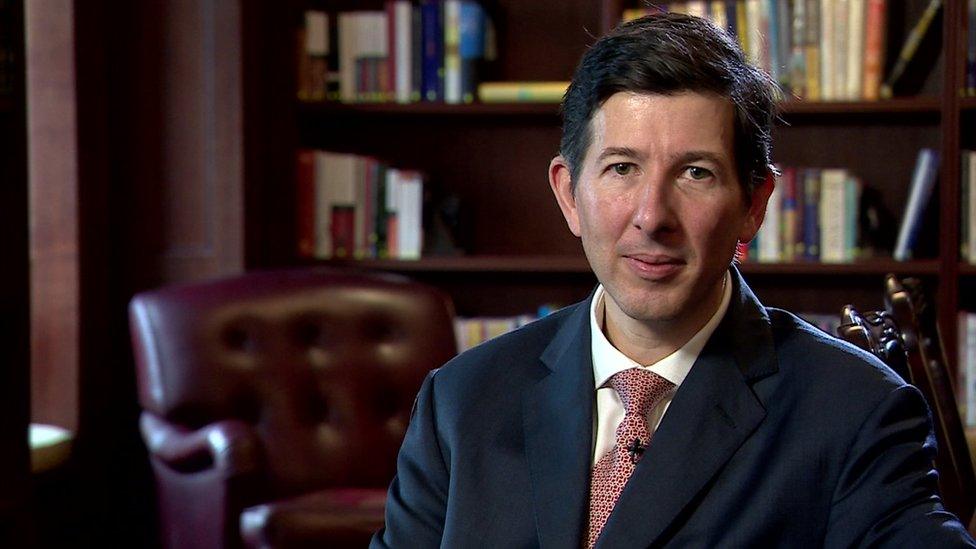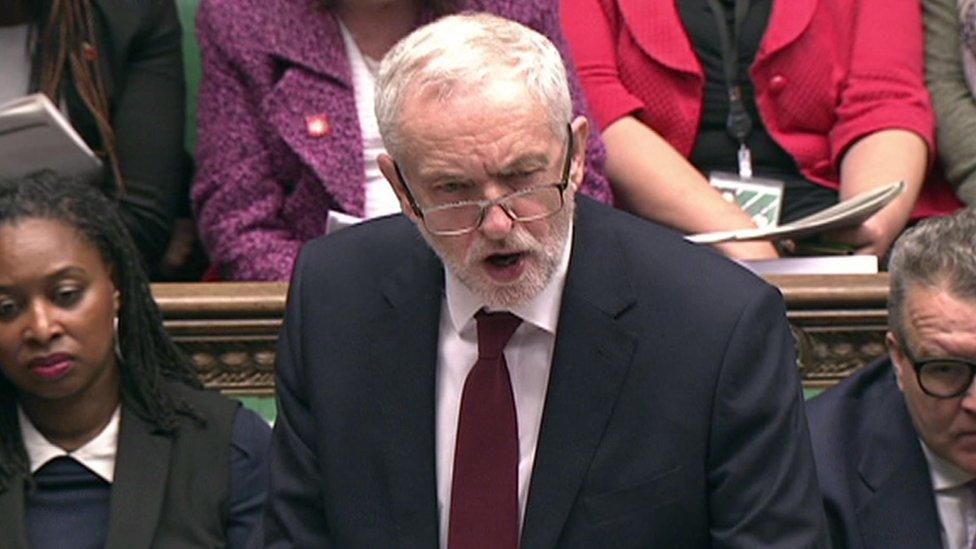Universal Credit: Architect of welfare shake-up urges changes
- Published
- comments

Dr Brien wrote the report which formed the basis of one of the government's flagship policies
The man who invented Universal Credit has added his voice to growing calls for the benefit to be paid quicker.
Stephen Brien, whose report in 2009 became the blueprint for the benefit, told the BBC claimants should receive their first payment after four weeks.
Currently people typically have to wait six weeks and one in five wait longer.
Theresa May defended the system in the Commons on Wednesday though there is a widespread expectation that changes will be made in next week's Budget.
MPs are due to hold a debate on Universal Credit, which merges six benefits for working-age people into one new payment, later on Thursday.
Last month the Commons voted overwhelmingly to pause its roll-out but the government did not take part in the ballot and effectively ignored the decision.
Universal Credit started life in the Centre for Social Justice think tank, under the leadership of Dr Brien.
In 2009, he wrote a 370 page report called Dynamic Benefits, external, which became the basis for the new benefit. He then went on to work in the Department for Work and Pension between 2011 and 2013, creating the benefit.
'Challenging'
While he told the BBC the principle of the idea remains, he believed there were now significant operational problems.
"I would get rid of the seven days (waiting period)," he said, referring to the initial week after someone makes a claim where they aren't paid any benefit even if they're eligible for Universal Credit.
And he also thinks the department doesn't need a week to actually process payments.

The system is predicated on making people better off in work

But critics warn it is forcing more and more people to turn to food banks
"We should be looking at something much closer to a four-week process.
"When we are looking at a group of people who have lost their job, to expect them to take six weeks on their own back without getting any cash is a challenging one.
"I think we have to recognise that the benefits system needs to focus on the needs of the most vulnerable as much as it focuses on getting people back to work."
Universal credit is the largest change to the welfare system in decades. It combines six working-age benefits, such as tax credits and housing benefit, into one monthly payment.
Incentives
The roll-out of the benefit is currently being accelerated to 50 job centres a month. A number of groups, including Citizens Advice, the Labour Party and the Children's Commissioner for England, have called for the extension to be paused arguing that it is creating debts and rent arrears.
The government has so far resisted such demands, arguing the benefit is working and getting single people into a job quicker than previous benefits.
Stephen Brien, who currently works for the Legatum Institute, also argues changes made by the government in the 2015 Budget have moved Universal Credit away from its over-riding aim - to make work pay for everyone.
"Certain groups have a greater incentive than they had in the past; others do not, and that's the area we need to fix. It was designed to make work pay. It still makes work pay but not as well as it could and should do."
The 2015 changes to the current system of tax credits means it is currently more attractive for some people to move into work than it will be under Universal Credit.
Forthcoming Budgets should address the problem, Dr Brien says.
"There is more value in increasing the work allowances payments for benefit claimants than in increasing the tax threshold for earners. The most vulnerable groups will benefit most from increases in work allowances than raising the threshold of tax."
- Published15 November 2017

- Published13 May 2024
